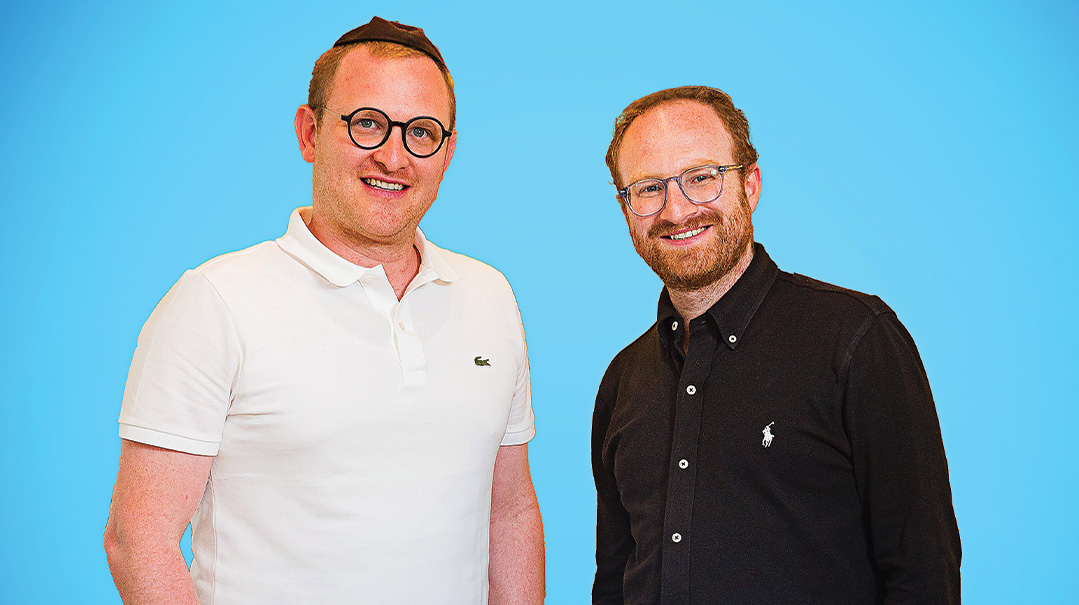Seeing Triple

AJ Orbach and Maxx Blank braved failure and doubt to build Triple Whale. Now the promising startup is blowing competitors out of the water

Photos: Elchanan Kotler
Question:
What do you get when you combine an Israeli yeshivah bochur with a penchant for start-ups, a young American entrepreneur who was introduced to Yiddishkeit through a frum networking event, and an oleh from Belarus who’s considered one of the world’s top software coders?
Answer:
Triple Whale, the start-up that provides a streamlined system of deep analytics for online businesses and that within a year, succeeded in raising $27.7 million and attracting over 5,000 customers across the globe.
IS it luck? A miracle? The natural outcome of the meeting of brilliant minds?
“Siyata d’Shmaya,” reply two of the co-founders, AJ Orbach and Maxx Blank, as if on cue.
Sitting in their spacious, slick Jerusalem offices, they don’t take anything for granted. Just last year, AJ, the CEO, had to sell his apartment to cover his living expenses; COO Maxx was barely scraping by; and Ivan Chernykh, the CTO and third co-founder, was subsisting on Covid stipends. Today, the three sit atop one of the fastest-growing tech start-ups, which has the potential, they believe, to become one of the five biggest companies in the world.
“ ‘Product-market fit’ is a term frequently bandied around in the business and tech worlds,” explains Moe Mernick, Mishpacha columnist and Triple Whale’s head of operations for the past eight months. “What it means is that you have a product that people want, that they like, and start to use a lot. From there, it spreads organically.”
Prior to opening Triple Whale, AJ and Maxx worked together in e-commerce, and it was that experience that gave them an up-close, precision view into the needs and frustrations of their fellow online merchants.
“We had a very thorough understanding of the problems, because we were the customer that we sell to now,” AJ observes.
Maxx adds, “We’re building the platform I wish I had when I was growing my own e-commerce brands.”
In the business world, you can toot your own horn, but that’s no guarantee of success, nor will it attract the massive investment that is oxygen for new start-ups. As Triple Whale’s star started to rise, they received some notable votes of confidence from investors like Gigi Levy-Weiss of the NFX venture capital firm; and Andrew Hunt, founder and general partner of Boston-based VC firm Elephant and co-founder of digital eyewear giant Warby Parker. Hunt acknowledged that the Triple Whale platform “is exactly the type of solution we lacked when we started Warby Parker,” and lauded it as a “rarely seen product-market fit.”
If you’re an online merchant running an e-commerce business, you need to purchase ads in a variety of social media and Internet venues to drive customers to your site. But how do you know which ads are working? Which ads lead to sales?
It used to be that traditional tracking methods, like third-party cookies, could give you answers — but those solutions are disappearing from view, due to consumer privacy concerns. Apple’s new iOS 14.5 operating system effectively disables these tracking methods, and Google has announced it will get rid of third-party cookies by 2023.
Triple Whale has developed various tools that will track this same information for e-commerce businesses, working from their own servers — eliminating the need for the old tracking methods. Perhaps more importantly, Triple Whale streamlines the presentation of this information into an easy-to-read dashboard for business owners, giving them real-time, up-to-date information on how effectively their ad dollars are being spent.
Oops! We could not locate your form.







